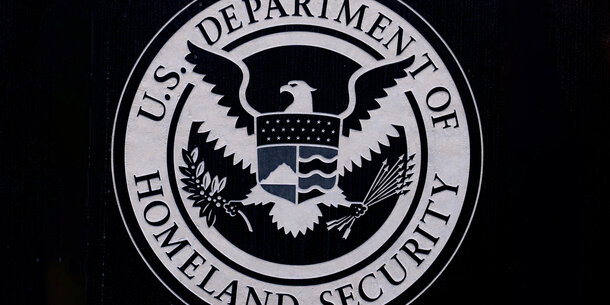Over the summer, a federal judge in Manhattan granted compassionate release for three of the four men convicted in the “Newburgh Four” terrorism case. Judge Colleen McMahon’s decision helped rectify the injustice of the decades-long prison sentences in a case where, as noted by the Second Circuit Court of Appeals, an FBI informant, not the defendants, “inspired the crime, provoked it, planned it, financed it, equipped it, and furnished the time and targets.” But the FBI rules that allowed this conduct remain in place and must be reformed.
In 2008, FBI-paid informant Shahed Hussain met James Cromitie in the parking lot of a mosque in Newburgh, New York, a town with a high poverty rate and large Muslim community. (Cromitie was not part of the compassionate release request that has set the other three free.) Hussain befriended Cromitie, a down and out petty drug dealer. Hussain claims to have told Cromitie that he was a member of a terrorist organization in Pakistan, which Cromitie allegedly expressed interest in joining. In subsequent recorded conversations, Cromitie made hateful antisemitic remarks, but according to evidence presented during the trial in 2011, when Hussain encouraged him to “make a plan, pick a target, find recruits, . . . procure guns, and conduct surveillance,” Cromitie did nothing. Hussain sought to motivate Cromitie by assuring him he would be rewarded in the afterlife for a jihadist attack, to no avail.
Hussain began offering more significant financial incentives for executing an attack, including promising Cromitie a BMW and cash, but Cromitie remained uninspired, taking no action to develop an attack plan. Even FBI agents thought that Cromitie was “unlikely to commit an act without the support of the FBI source.” Hussain’s enticements became more extravagant, including offering to pay Cromitie $250,000, an unauthorized inducement the FBI captured on a wiretap. Apparently tempted by the big payoff, Cromitie accompanied Hussian to scope out a potential target, but thereafter avoided Hussain and his persistent attempts to resume contact.
Cromitie avoided Hussain for almost two months. After losing his job and desperate for money, he reinitiated contact with Hussain and agreed to plot an attack. At Hussain’s urging, Cromitie recruited other Muslim men, David Williams, Onta Williams (no relation), and Laguerre Payen, to serve as lookouts. Like Cromitie, they too were impoverished with histories of petty drug crimes and mental illness. With the four men along for the ride, the informant Hussain pushed the scheme forward, selecting a synagogue and U.S. Air Force base as targets and driving the defendants across state lines (to ensure federal jurisdiction) to pick up mock weapons arranged by the FBI.
The men were clearly not without fault. They went along with the plot and placed the imitation bombs at the synagogue. But the government, through the informant, drove the scheme, instigating, planning, and bringing it to fruition. And the FBI and New York City Police Department arranged publicity, with helicopters and camera crews in place to record the arrest of the Newburgh Four. Justice Department prosecutors charged them with eight offenses, two of which carried mandatory minimum sentences of 25 years. And though “the Government indisputably ‘manufactured’ the [defendants’] crimes,” as McMahon previously noted in the case, all four were convicted.
The sting operation against the Newburgh Four was enabled by FBI rules that allow investigations to proceed without a reasonable indication of criminal activities or a factual basis to suspect wrongdoing. First issued in the 1970s after congressional investigations into the FBI and its abuses of power, the FBI guidelines, which are set by the attorney general, delineate the bureau’s counterintelligence powers. But the guidelines loosened over subsequent decades, and after 9/11, both Attorneys General John Ashcroft and Michael Mukasey issued guidelines that established unreasonably low criteria for opening investigations into individuals not suspected of criminal activity. The bureau’s post-9/11 guidelines allow agents to investigate people whenever they claim to have an “authorized purpose,” which is broadly defined as protecting national security. Combined with law enforcement’s intense suspicion of American Muslims, this overbroad authorization led to the Newburgh fishing expedition.
Because of the loosened guidelines, the FBI could investigate Cromitie without checking the veracity of his claims that he had an extensive and violent criminal history and that his father was Afghan. Verifying these claims would have revealed that Cromitie was a liar and desperate grifter, not an aspiring terrorist. But the post-9/11 guidelines, which reduced both the standards for opening investigations and the supervisory approval required, are further weakened by the bureau’s documented failure to comply with them. Given all this, the pursuit of Cromitie continued unabated.
The Newburgh Four sting operation is not an anomaly. For years, the FBI has constructed fake terrorist plots, incriminating young Muslim men who seem to lack the capacity and motivation to carry out attacks, then using the “spoiled plots” to justify and demonstrate the “success” of its expansive counterterrorism budget. In the Newburgh Four case, as in so many others, the FBI prevented no attack and caught no terrorists. Instead, it created criminals from four men desperate for cash.
The real victims in this case were the innocent people implicated in the government’s scheme: the Muslim community, again depicted as likely terrorists; the Jewish community, who experienced palpable fear from a government-staged “attempted” attack on their synagogue; the Newburgh community, targeted by the FBI for their demographic makeup and economic struggles; and, of course, the four men, who have served over 14 years for a crime invented, developed, and urged on by an unreliable informant and their own government. And if not for the Coalition for Civil Freedoms, which organized the motion for three of the men’s early releases, these men would have likely served another decade in jail.
To ensure that the FBI’s rules are properly proscribed through changing administrations and attorneys general, Congress should pass a legislative charter that codifies reformed guidelines into law. Until Congress does so, the Biden administration should instruct Attorney General Merrick Garland to restore reasonable criminal predicates to all investigative activity.
The FBI’s misuse of its power shows the clear need for greater limits and stronger independent oversight of its investigative authorities to ensure that future operations are designed to capture real terrorists rather than create them.



